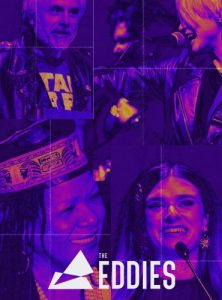Momentum Endowment Campaign at Proctors
A Permanent Foundation
A $35 million endowment campaign will develop a sustaining fund to ensure the permanent operation of Proctors and its many mission-driven programs. It will guard against the uncertainties of the future and ensure that we build upon the success of recent years and continue to help the region grow and thrive. While we have won acclaim for our stewardship, leadership and innovative programming, we lack one thing: consistent working capital to realize or full potential.
Support Our Momentum
A gift to this campaign will continue our work to:
- Provide scholarship funding for 10,000 students per year to attend a variety of educational programs, from first encounters with the arts to college and career training.
- Subsidize our mission-driven community resource programs, such as the Downtown Ambassadors and in-kind services for local organizations.
- Fund the presentation of a diverse array of arts programming, to ensure access for future generations and representation of our entire community.
- Support the ongoing maintenance and preservation of this historic landmark.
A fully funded endowment of $35 million will yield a minimum of $1.4 million per year in perpetuity (based on the national average for endowment utilization).
Donors may choose to make a gift today, pledge over the next five years or choose to leave a Legacy gift in their estate plans. For more information, contact:
Barbara Bishop Ward, Endowment Campaign Director
(518) 382-3884 ex. 133 or bward@proctorscollaborative.org

“Proctors Theatre and now Proctors Collaborative has been a catalyst for positive change in the Capital Region by setting an example of removing barriers to help organizations work together for the betterment of our greater community. “By being members of the Proctors Legacy Society, we are leaving a meaningful mark on a leader in the regional arts that aligns with our personal values. It’s a way to add to the foundation built by earlier supporters providing resources that continue beyond our lifetimes, reflecting our passion for the arts, and enabling Proctors to thrive for years to come.”
—Chet & Karen Opalka
Legacy Society Members






